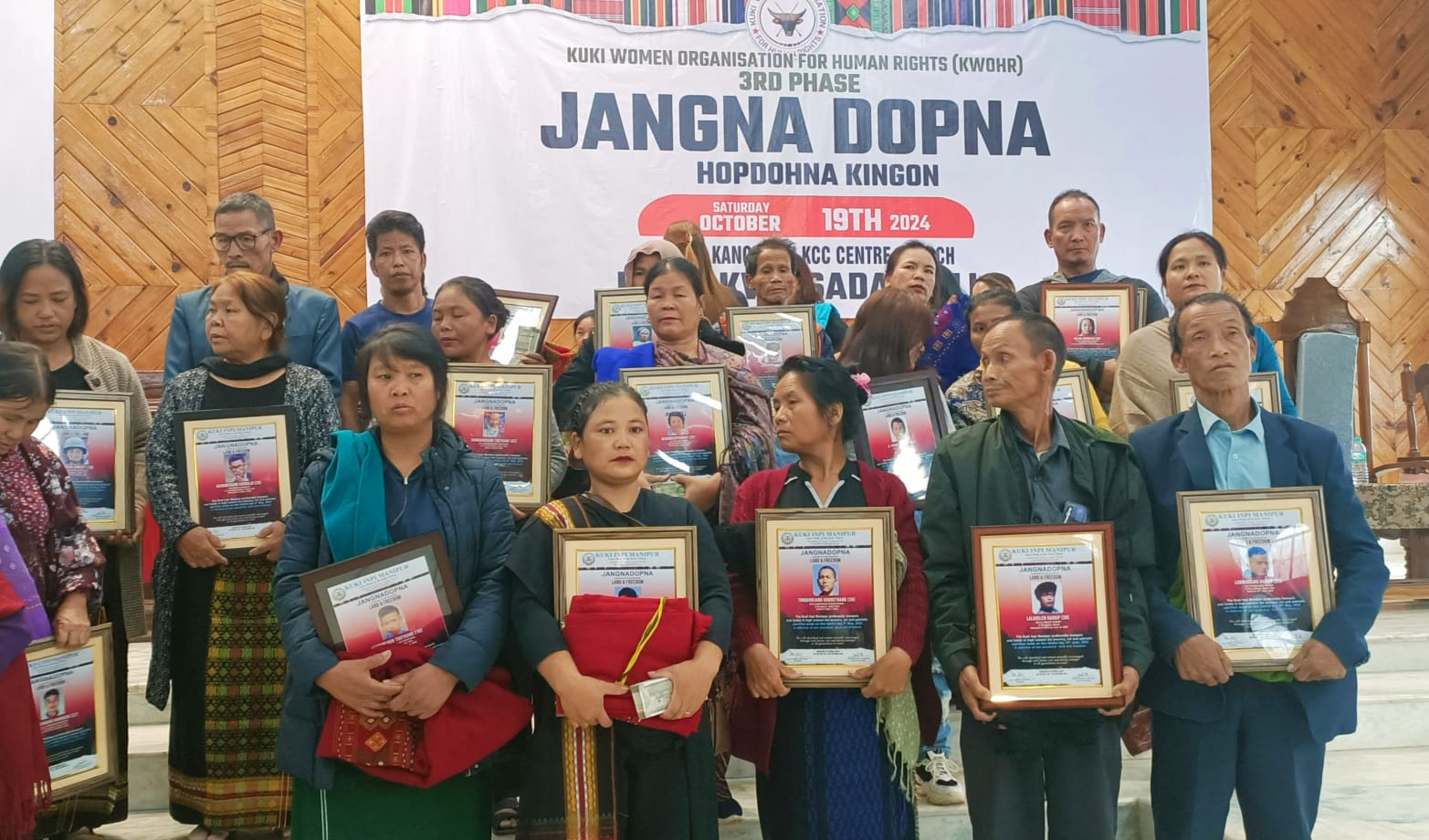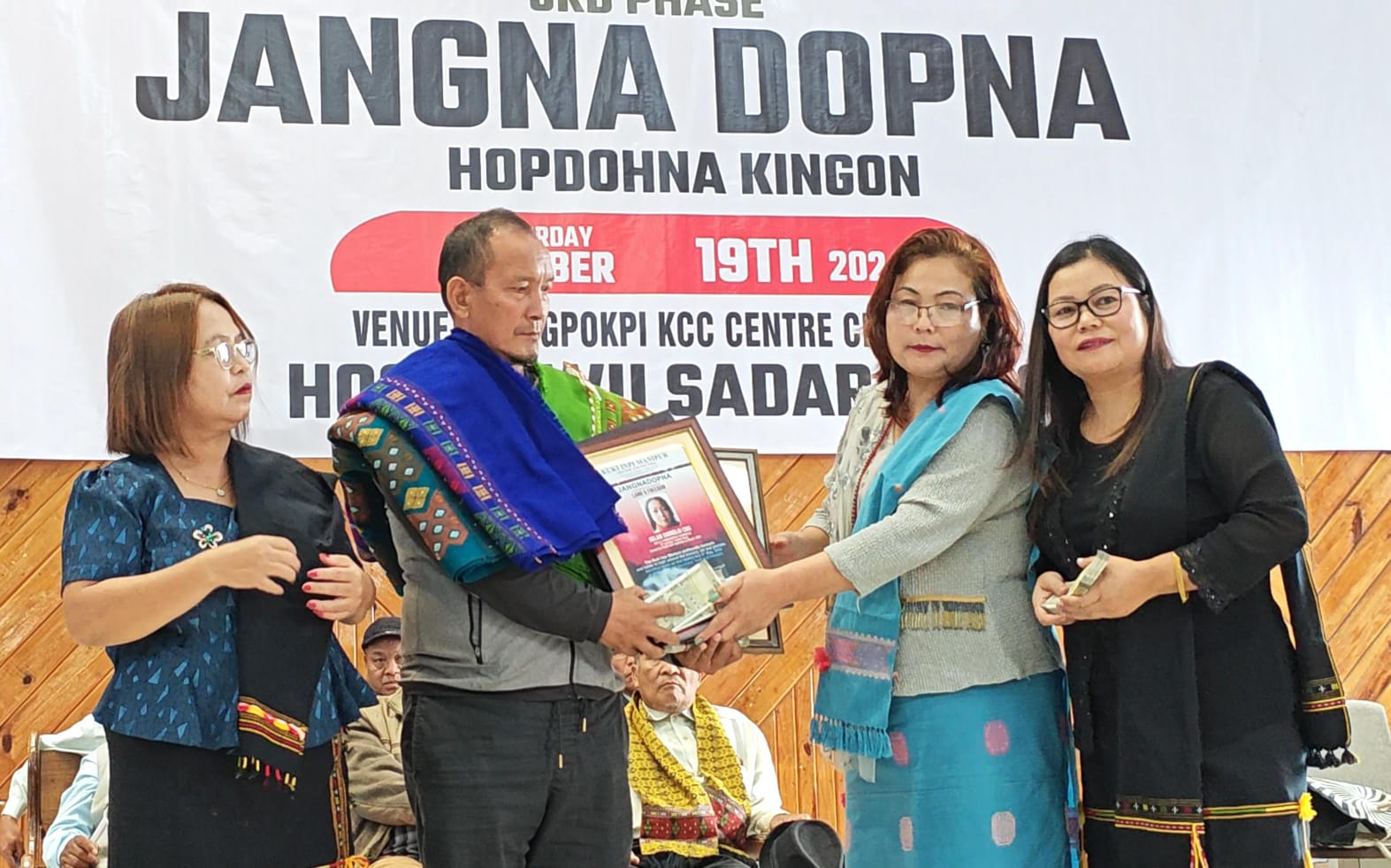
The third phase of the "Jangna Dopna" project, initiated by the Kuki Women Organisation for Human Rights, was held at Kangpokpi Christian Church, Kangpokpi town, in a moving ceremony that underscored the solidarity of the Kuki-Zo community in the face of ongoing ethnic conflict.
"Jangna Dopna," is a unique initiative designed to provide voluntary financial aid to the families of Kuki-Zo Martyrs. It symbolizes the strength, compassion, and resilience of Kuki-Zo women, who have rallied together to support those who have suffered most from the violence.
This initiative, the brainchild of the Kuki Women Organisation for Human Rights, continues to expand its reach. Since its inception, it has now compensated 48 victim families, with the third phase supporting 20 families.

In the first phase, launched on June 15, 2024, in Churachandpur, 12 families were aided, followed by 16 families in the second phase in August. Each compensated family receives ₹1 lakh in financial aid, along with a memento from the Kuki Inpi Manipur (KIM) and a traditional shawl, Saipikhup, a symbol of honor and remembrance.
Hosted by the Kuki Women Union Sadar Hills, the third phase brought together key tribal and Kuki-Zo civil society organizations (CSOs), including KIM, the Sadar Hills Chiefs' Association, the Committee on Tribal Unity, and leaders from other Kuki-Zo tribes and organizations. The event was not only a moment of material support but also a solemn tribute, with Rev. Dr. Satkhokai Chongloi offering prayers for the Martyrs' families and the Kuki-Zo people. Prominent leaders addressed the gathering, expressing their deep respect for the fallen and the ongoing struggles of the Kuki-Zo community.
The "Jangna Dopna" project stands as a powerful testament to the Kuki-Zo women's commitment to their people. Through their efforts, they have shown that even in times of adversity, the community remains united, resilient, and capable of self-reliance. The project also sends a clear message to authorities and the broader public about the community's ability to support itself in the absence of adequate state intervention, emphasizing their determination to protect and uplift their own people.
Rebecca Haokip, spokesperson for the Kuki Women Organisation for Human Rights, said that the Jangna Dopna Project was initiated to honor and support the families of Kuki-Zo Martyrs. She emphasized that Kuki women, both in India and abroad, have united to contribute financially, showing solidarity with the bereaved families impacted by the ongoing conflict.
Reflecting on the project’s progress, she mentioned that 28 families were supported in the first two phases, and today, 20 more families have received aid. Each family was given ₹1 lakh, a traditional Saipikhup shawl, and a memento, symbolizing the community's shared grief and commitment to ensuring the sacrifices of the Martyrs are never forgotten.
Haokip further highlighted that this initiative reflects the strength and unity of Kuki women globally, adding that the project will continue, urging Kuki-Zo women worldwide to support the Martyrs’ families.
The "Jangna Dopna" project not only offers material aid but also serves as a symbol of the community's resilience, sending a clear message of self-reliance and unity in the face of adversity.

The Hills Journal
K. Salbung, Churachandpur
Manipur-795128